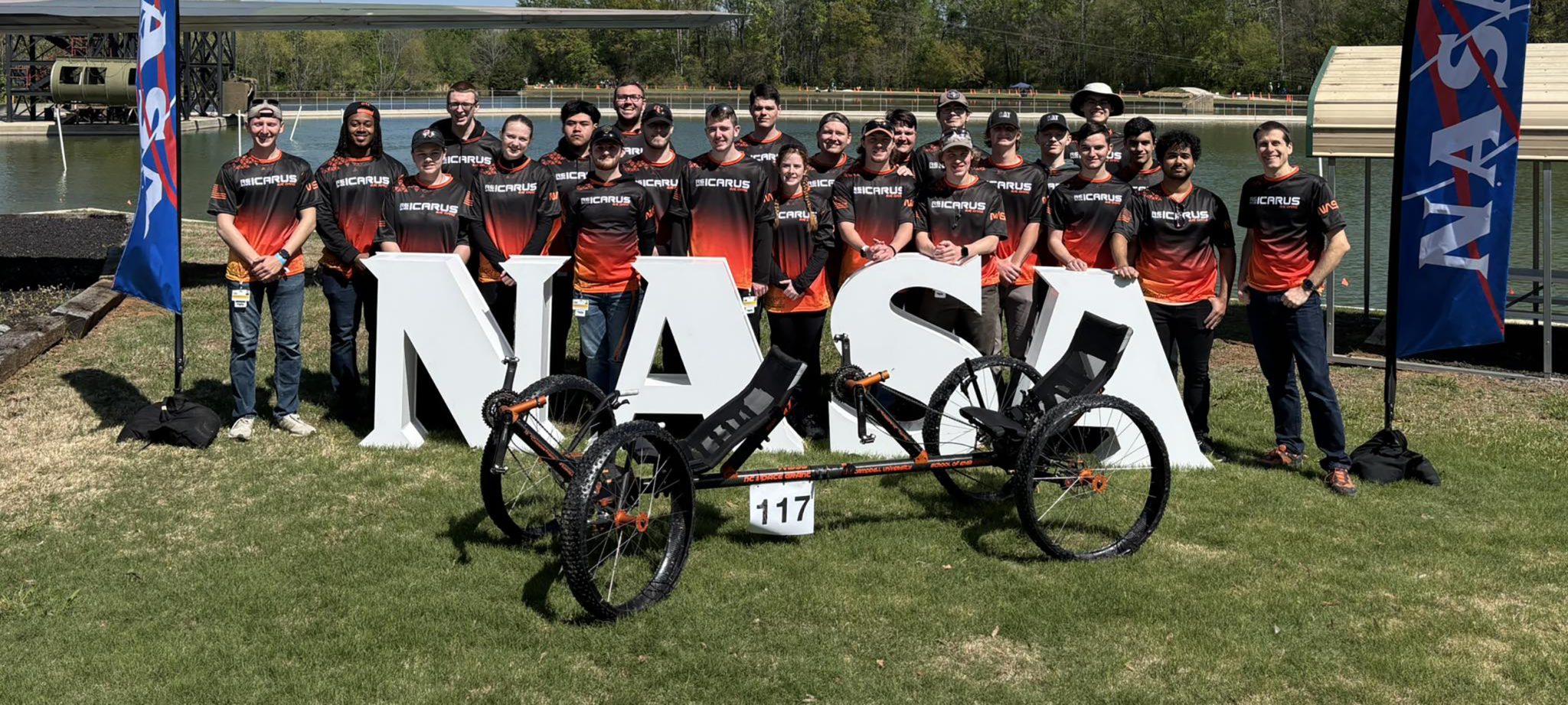
Campbell engineering wins first overall in NASA’s rover challenge
By Staff Report, posted Apr 30, 2025 on BizFayetteville.com

Campbell University engineering students took home the top prize — first place overall in the Collegiate Division — in the NASA Human Rover Exploration Challenge held April 11-12 at the U.S. Space & Rocket Center in Huntsville, Ala.
Campbell University took home five awards in all — the HERC team took first overall, the Featherweight Award for the lightest rover and the Project Review Award for best documentation; while the HERO team placed second overall in the remote control rover competition (in the event’s first year) and the “Most Improved” award for best score increase between first and second runs.
School of Engineering Founding Dean Dr. Jenna Carpenter called the group’s performance a “tremendous accomplishment” and a proud moment for both the engineering school and the university.
“Our students have literally spent hundreds of hours designing and building the rovers, as well as completing the required documentation, oral presentation, STEM outreach activities and social media campaigns,” Carpenter said in a press release. “The technical and professional skills and expertise they’ve gained is immeasurable.”
Carpenter specifically thanked the team’s faculty advisors, Dr. Lee Rynearson, Dr. Mohsen Manesh, Dr. Allison Lee and grad student Cody Brown, all of whom she said provided “wise guidance to our students.” She also thanked the group’s supporters who made the experience possible.
More than 500 students from 75 colleges and high schools participated in this year’s NASA HERC event, now in its 31st year. Teams were awarded points based on navigating a half-mile obstacle course, conducting mission-specific task challenges and completing multiple safety and design reviews with NASA engineers.
The rover challenge is one of NASA’s eight Artemis Student Challenges reflecting the goals of the Artemis campaign, which will land Americans on the Moon while establishing a long-term presence for science and exploration, preparing for future human missions to Mars. NASA uses such challenges to encourage students to pursue degrees and careers in the fields of science, technology, engineering and mathematics.
Copyright © 2026
Enhanced Media Management Inc. dba
Greater Fayetteville Business Journal
This story may be displayed, reformatted and printed for your personal, noncommercial use only and in
accordance with our Terms of Service located at https://bizfayetteville.com/useragreement.